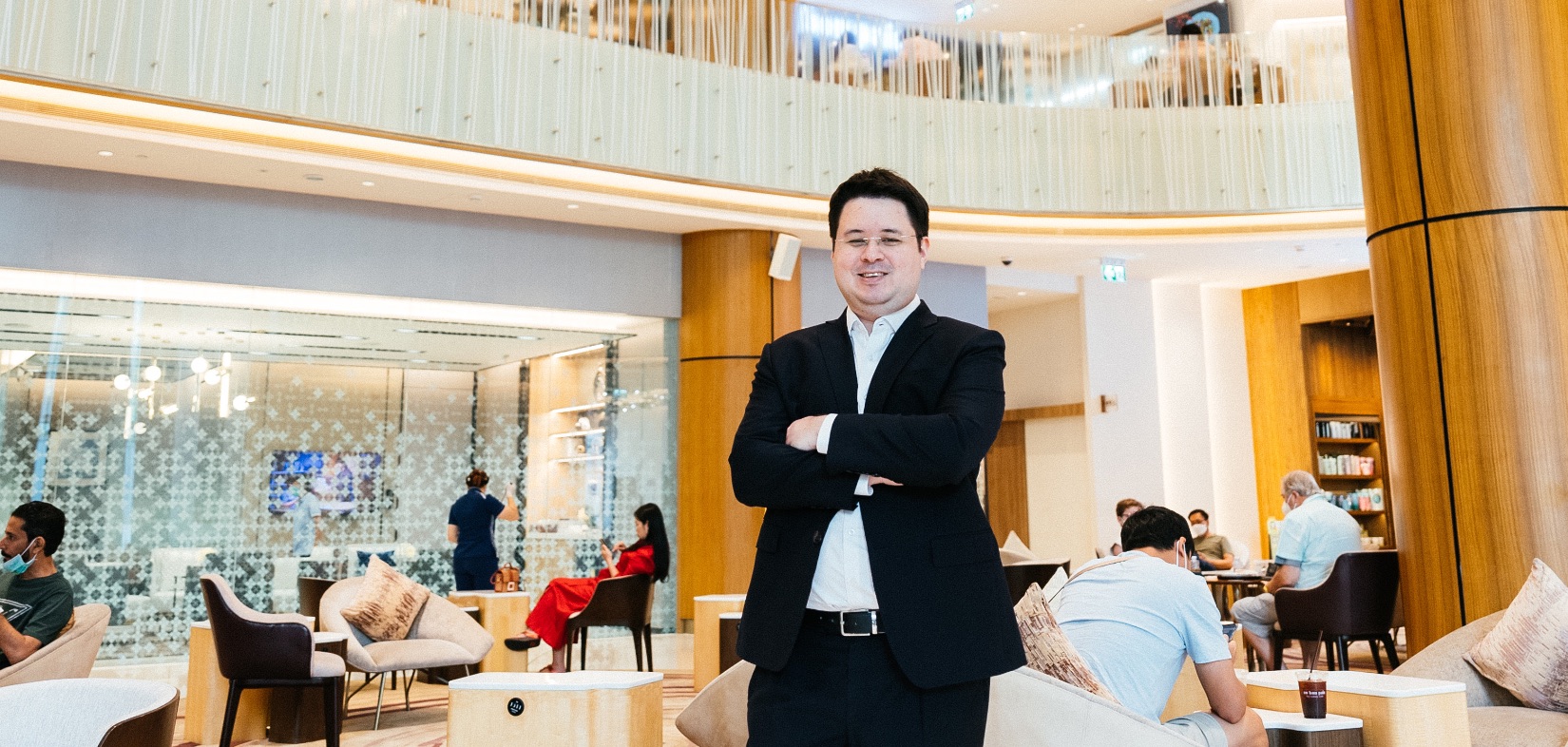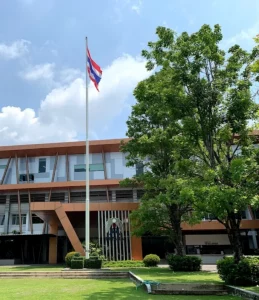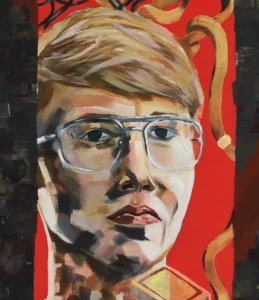
Education: A Powerful Tool for Change
Bangkok Patana alum Grad’06, Daniel Kastner explains why his formative years at Bangkok Patana School provided the perfect grounding for his current position as Chief Transformation Officer at Bumrungrad International Hospital.
Daniel Kastner, Grad’06
Nelson Mandela said, “Education is the most powerful weapon which you can use to change the world”, and Daniel Kastner is the embodiment of this concept. He left Bangkok Patana International School 17 years ago to pursue an accounting degree in Vienna, Austria. Returning to Thailand, he embarked on a career in management consultancy and investor relations before tackling the role of Chief Transformation Officer at Bumrungrad International Hospital. Koktail magazine sat down with Daniel recently, now four years into the task, to learn how an international school education in Thailand helped set him up for a successful business career.
KM: Thinking back to school, what are the strongest memories?
DK: The first is the “Model United Nations” programme I was actively involved in at Bangkok Patana, it allowed me to build confidence in public speaking and debating. It broadened my horizons in terms of social, economic and political issues, and trying to find resolutions. I represented the so-called pariah countries, North Korea, Iran and so on, in the Model United Nations, taking on the role of ambassador, essentially play-acting to resolve differences on current issues. I became a more holistic person with a balanced viewpoint.
KM: What made your parents pick Bangkok Patana?
DK: I think the key driver was the international perspective, and the soft skills like forming relationships, friendships. It’s an eclectic mix of people, with children of prominent Thai fami- lies, diplomats, expats. This diversity gave me confidence to deal with other cultures. My father is Austrian and my mother is Thai and we spoke English at home.
KM: How has that helped you in business?
DK: In business you need to understand and empathise with the other party, to find a mutually beneficial solution.
Having that allows you to speak and negotiate confidently, using your intuition, knowledge and experience, a basic skill in business and management.
When you have studied and lived in an international environment, you typically find you can empathise and recognise patterns and then apply that knowledge intuitively, say, at a high-level meeting and you may stand out from the crowd.
KM: What did you study after graduating from Bangkok Patana?
DK: Finance and Accounting at the University of Applied Sciences in Austria. Their focus was on real life application of learning. That helped when I entered the business world during the global economic crisis in 2009.
KM: What made you come back to Thailand?
DK: I love the food, the people and the weather! When I first moved back it was tough finding work, because at that time, the economy was weak. I started as a corporate coach training executives and middle level managers in specific topics like project management and strategic thinking. I then moved into business development before I became an analyst at a large private fund focused on investments in Vietnam.
KM: Tell us about your role as Chief Transformation Officer. What change are you working on?
DK: As a 42-year-old business, there are legacy challeng- es transitioning to a digital smart hospital providing precision medicine to our patients. One of my roles is to drive utilisation of new digital tools to help serve clients. I also have responsibility to represent Bumrungrad for a 99-bed hospital in Mongolia. I recently took over domestic business development in Thailand including insurance management. This involves the patient flow from getting authorisation for a procedure from the insurance companies all the way to the claims. I’m typically assigned to areas where our top management feels more attention and input from somebody from a younger generation might be helpful.
KM: How would you advise current students in build- ing a meaningful career?
DK: I think positivity, luck and timing are important. I joined
Bumrungrad as a senior manager for investor relations. Four years later, I’m privileged to have moved to the C-suite as a Chief Transformation Officer. I think timing was paramount.
KM: There’s got to be something else…
DK: Yes obviously; education, experience and personal- ity and belief in yourself. When you have studied and lived in an international environment, you typically find you can empathise and recognise patterns and then apply that knowledge intuitively, say, at a high-level meeting and you may stand out from the crowd.
KM: Bangkok Patana’s message is “A World of Opportunity.” Does that resonate with you?
DK: It is a very apt slogan. I’m privileged to have the opportunity, the education, the experience and the shaping of my personality through the school, helping make me who I am today. Being grounded is important. I’m always open to new experiences and new opportunities. There are so many links between life at Bangkok Patana and here at Bumrungrad, with excellence and diversity being the common thread.
KM: So, both world class education and world class health care here in Thailand?
DK: Thailand punches well above its weight in both! We are blessed with a beautiful country, culture and friendly smiles – that is why Thailand is a leading tourist destination. Pair that with our excellent international standard schools and hospitals and you can see why so many international businesses want to be based in Thailand.






